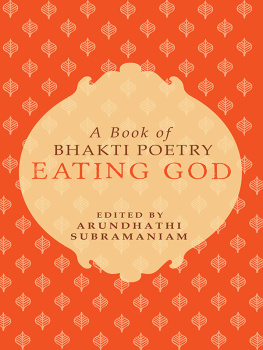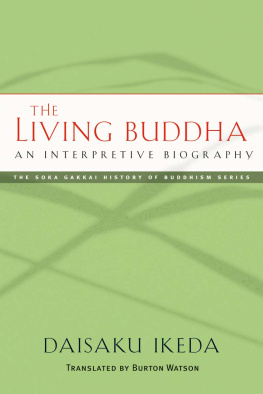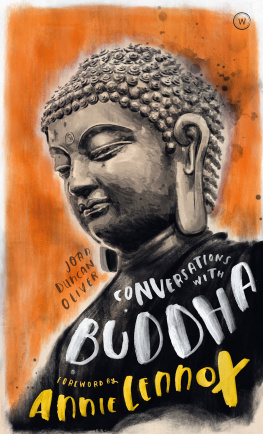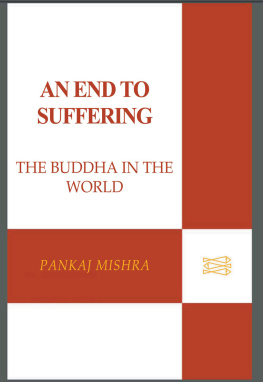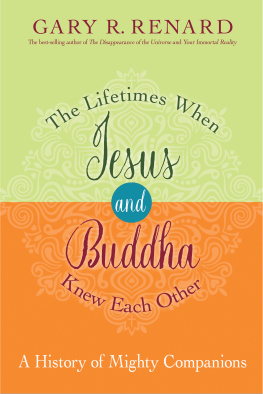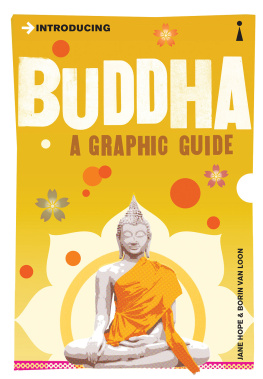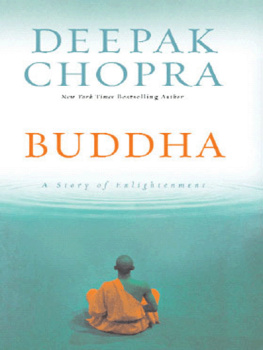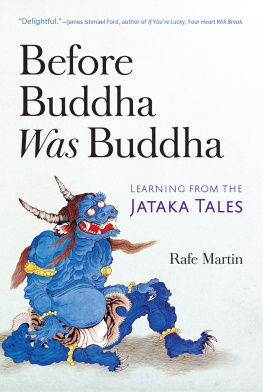A round 2500 years ago a thirty-five-year-old man named Siddhartha had a mystical insight under a peepul tree in north-eastern India, in a place now revered as Bodhgaya. Today, more than 300 million people across the globe consider themselves beneficiaries of Gautama Buddhas insight, and believe that it has irrevocably marked their spiritual commitment and identity. Who was this man who still remains such a vital figure for the modern-day questor? How did he arrive at the realization that suffering alone exists, but none who suffer; the deed there is, but no doer thereof; Nirvana there is, but no one seeking it; the Path there is, but none who travel it? The Book of Buddha traces the various stages of the spiritual journey undertaken by a man who started out as Siddhartha the Seeker, achieved understanding as Shakyamuni the Sage and attained supremacy as Tathagata the Masterfinally reaching transcendence as Jina the Victor when he was transformed into the Buddha and became the Enlightened One.
Combining personal insight with a deep understanding of Buddhist philosophy, Arundhathi Subramaniam gives the reader a sensitive and revealing portrait of the Buddha and his role in shaping and transfiguring the course of history. In this passionate and deeply felt rendition of the Buddhas life she explores his enduring impact, and affirms that though he promised no quick-fix solution to lifes problems, Buddhism has remained truly democratic because it holds out the promise of self-realization for all.
The Book of Buddha
Books in this series
The Book of Buddha
The Book of Devi
The Book of Durga
The Book of Ganesha
The Book of Hanuman
The Book of Kali
The Book of Krishna
The Book of Muhammad
The Book of Muinuddin Chishti
The Book of Nanak
The Book of Ram
The Book of Shiva
The Book of Vishnu
The Book of
Buddha
ARUNDHATHI SUBRAMANIAM
PENGUIN BOOKS
PENGUIN BOOKS
Published by the Penguin Group
Penguin Books India Pvt Ltd, 11 Community Centre, Panchsheel Park, New Delhi 110 017, India
Penguin Group (USA) Inc., 375 Hudson Street, New York, New York 10014, USA
Penguin Group (Canada), 90 Eglinton Avenue East, Suite 700, Toronto, Ontario, M4P 2Y3, Canada (a division of Pearson Penguin Canada Inc.)
Penguin Books Ltd, 80 Strand, London WC2R 0RL, England
Penguin Ireland, 25 St Stephens Green, Dublin 2, Ireland (a division of Penguin Books Ltd)
Penguin Group (Australia), 250 Camberwell Road, Camberwell, Victoria 3124, Australia (a division of Pearson Australia Group Pty Ltd)
Penguin Group (NZ), 67 Apollo Drive, Rosedale, North Shore 0632, New Zealand (a division of Pearson New Zealand Ltd)
Penguin Group (South Africa) (Pty) Ltd, 24 Sturdee Avenue, Rosebank, Johannesburg 2196, South Africa?
Penguin Books Ltd, Registered Offices: 80 Strand, London WC2R 0RL, England
First published in Viking by Penguin Books India 2005
Published in Penguin Books 2009
Text copyright Arundhathi Subramaniam 2005
Illustrations copyright Penguin Books India 2005
Illustrations by Subroto Mallick
All rights reserved
ISBN: 978-01-4306-765-8
This digital edition published in 2011.
e-ISBN: 978-81-8475-091-1
This e-book is sold subject to the condition that it shall not, by way of trade or otherwise, be lent, resold, hired out, or otherwise circulated without the publishers prior written consent in any form of binding or cover other than that in which it is published and without a similar condition including this condition being imposed on the subsequent purchaser and without limiting the rights under copyright reserved above, no part of this publication may be reproduced, stored in or introduced into a retrieval system, or transmitted in any form or by any means (electronic, mechanical, photocopying, recording or otherwise), without the prior written permission of both the copyright owner and the above-mentioned publisher of this e-book.
Contents
Preface
I think I was five, and in my uncles house, when it first registeredan impassive, somewhat weathered, limestone image, in the archetypal Gandhara style. It was a face of extraordinary tranquility. A face that presented a stark contrast to the densely populated pantheon of Hindu gods that dominated my childhood devotional landscape.
The gods I knew in my mothers puja room were a vibrant bunch, captured in states of perpetual animation: the dancing Nataraja, the playful Krishna, the devoted Hanuman, the benign Ganapati. Arrestingly idiosyncratic personalities in their own right, all of them. But somehow they seemed to be busy folk, preoccupied with activities of an external kind. None of them exuded the air of untroubled interiority that this limestone figure did.
I mulled over the image in the inarticulate manner of a five-year-old. What was he thinking about? Was he never angry? Never sad? Above all, never bored? Was it actually possible to be so immersed in some world inside the self?
And so, without knowing it, my fascination with the Buddha had begun.
The Amar Chitra Katha comic that I stumbled on sometime later, offered a life-story, but of a schematic sort. It only endorsed the impression I already hadof a compelling but puzzling inwardness. In my teens, I rediscovered the Buddha through other channels: through S. Radhakrishnan and Hermann Hesse, Alan Watts and Christmas Humphreys. He remained an inspirational figure, but for other reasons. He appealed now as the heroic solitary seeker who blazed his own trail; the man who asked the same questions that I did but dared to devote his entire life to addressing them.
But most importantly, here was a sage who didnt patronize me. He didnt tell me that he belonged to the hallowed echelons of the spiritual elect. He didnt smile down beatifically from some rarefied stratosphere. Here was someone who didnt demand weak-kneed veneration. He seemed to be comfortable with equality. We could be friends, I thought (with some impunity, forgivable perhaps in a seventeen-year-old). If you met him on the road, went the famous Zen epigram (that I, like many others, found so enticing), kill him. Here at last, I felt, was someone who spoke my language.
More than a decade-and-a-half later, I find that he still speaks it. I have approached him time and againnot as a student of philosophy or history, but as a seeker, with a seekers mix of curiosity and desperation. He seldom lets me down. Few seem to have articulated the human predicament with quite the same degree of lucidity, psychological acuity and unsentimental precision. And it is as a seekernot as a scholarthat I approach him once again in this book. What empowered me in what often seemed like a formidable enterprise was the man himself and his own staunch refusal to turn the existential journey into a matter for experts and cardholders.


